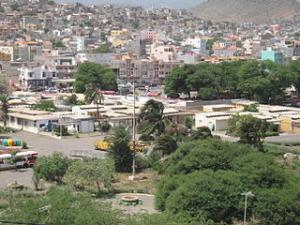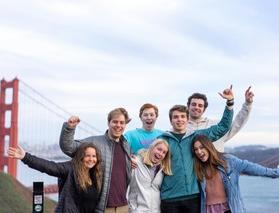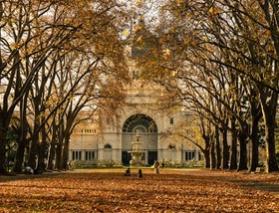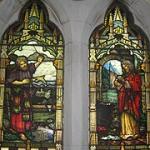 (Wölbern/Wikimedia Commons)
(Wölbern/Wikimedia Commons)
Some words might be called a noun/verb: you can possess it and do it. My wife and I benefited in this during one of the most critical adventures in our life.
A Question
Years ago, a good friend asked a group of us, “Is faith a noun or a verb?” After a lengthy, passionate discussion, we settled on “unsettled.” Siri was more definitive: “Faith is a noun” she affirmed. I have often thought about this question, not that it matters to my salvation (or does it?), and I have found myself feeling deeply grateful for the “noun” faith. Grateful that I possess it, that it was a gift given to me. Grateful to feel its comfort and security, its reassurance, its hope. But also, afraid to lose it.
I’m also grateful I’ve learned the “verb” faith. For its impact on my life. The verb faith whispers encouragement to move forward, trust in, leap to, walk in, hope for a power greater than mine—faith in Jesus Christ. Faith in His power, in His comfort, in His healing, in His presence, in His promise, in His atoning sacrifice and the impact that sacrifice has and will have on me, my family, and all of God’s children.
I have learned to think of faith as a noun/verb—each use of it fortifies and expands the other. Paul taught us that “faith, if it hath not works, is dead, being alone” (James 2:17). I like to think that faith without action is dormant and has little impact. But faith with action, with work, with trust in Him is powerful.
Elder Dale G. Renlund explained, “Restored truth reveals that blessings are never earned, but faith-inspired actions on our part, both initial and ongoing, are essential.”
Noun-Verb and Worldwide Pandemic
For my wife and me, the noun/verb faith brought us through pandemic pandemonium. During the first few months of 2020, we were preparing for an assignment to serve as mission leaders to preside over the Praia, Cape Verde mission for the Church of Jesus Christ of Latter-day Saints, when suddenly all that we knew, all that we anticipated about this assignment, changed. The worldwide pandemic was expanding into all countries, and Cape Verde was no exception. The day scheduled for our departure came and went. Cape Verde had closed its boarders to all travel, in and out of the country.
One morning, after praying specifically that the boarders of closed countries would open and the pandemic would retreat, my wife was reading in Doctrine and Covenants 123:17: “Let us cheerfully do all things that lie in our power, and then may we stand still, with the utmost assurance, to see the salvation of God, and for his arm to be revealed.” Reading the powerful promise of this scripture, she felt the impression that we needed to act. With our noun faith, we were being asked to exercise our verb faith.
That same day, the currently-serving mission president called us and informed us that Cape Verde had scheduled a “repatriation flight” for Cape Verde citizens and that it would be leaving Lisbon, bound for Cape Verde, on the upcoming Wednesday—just six days away. It was Thursday, and we did not yet have visas for Cape Verde, nor were we citizens of Cape Verde, an obvious requirement to be permitted on a repatriation flight.
But the words “let us cheerfully do all things that lie in our power” echoed in our minds and hearts as confirming clarity on what we were to do—leap. Our noun-verb faith leaped with us. We called the Church’s travel department and asked permission to “do all things . . . in our power.” They quickly rallied behind us, and we all went to work.
Faith Tested, Faithing Rewarded
We had not anticipated the endless impenetrable roadblocks; we just faithed through them and experienced a series of faith-assuring miracles. The Lord stepped in and opened doors where there were no doors, changed and softened hearts, and removed seemingly relentless obstacles. This was our 36 hours:
- Flew to DC.
- Obtained visas from a closed embassy.
- Secured same-day covid test results in a city that had a minimum one-week scheduling lead time.
- Were permitted to board flights to London, Lisbon, and ultimately Cape Verde closed to foreign travelers.
- Received permission to board a repatriation flight reserved for Cape Verde citizens only.
At each “impossible” barrier, we exhausted our verb efforts, drained our noun resources—mental and physical—and then, we prayed. Following each prayer, we felt His hand slide in and clear a path. We saw doors open, hearts softened, policies suspended, minds changed, and barriers removed.
A gardener from Guatemala miraculously appeared and placed a call at the embassy at the moment we needed it. A nurse at the COVID testing facility softened her heart and made us a priority. A supervisor at the London check-in appeared at the critical moment and authorized our boarding. An authority from the Cape Verde Embassy in Lisbon appeared in the very moment of need and provided evidence of approval from the First Lady of Cape Verde to allow us passage on the repatriation flight. Custom officials, for a moment, altered their rigid protocol and approved entry into their country.
“Therefore, dearly beloved brethren, let us cheerfully do all things that lie in our power; and then may we stand still, with the utmost assurance, to see the salvation of God, and for his arm to be revealed” (D&C 123:17).
For us, faith will always be a verb, identifying an action. But its foundation, its catalyst, is the noun of belief, of hope, of truth, of comfort, of healing, of salvation, gifted to us by Jesus Christ.













